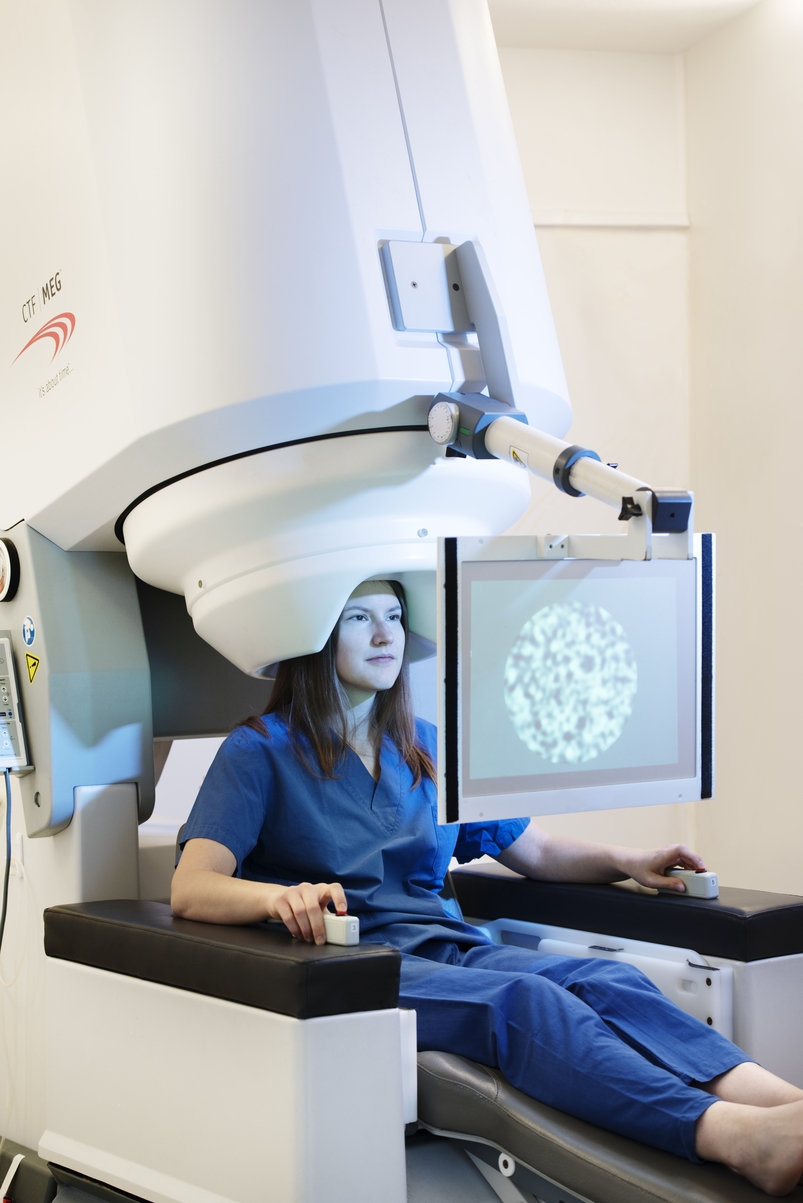attempto online - Research
23.10.2023
The human brain tends toward abstraction
Researchers from Tübingen can read out brain signals about abstract decisions – even during simple perception and action.
The human brain encodes decisions independently of the motor actions used to execute them - even in situations where such abstraction is not necessary. This is what a research team led by Professor Dr. Markus Siegel and first author Florian Sandhäger from the Hertie Institute for Clinical Brain Research, the University of Tübingen, and the University Hospital Tübingen found. The results were published in the journal PLOS Biology.
In the current study, the team examined the brain processes that underlie sensory decisions - such as whether a backlit traffic light is green or red. In particular, they questioned whether sensory decisions tied to a specific motor action are also made in an abstract, action-independent manner. A hitherto unresolved question: on the one hand, humans are capable of making highly abstract decisions that result in no action at all or in an action that is still unknown; on the other hand, many everyday decisions lead directly to a specific and always the same action.
To address this question, the scientists used a sophisticated experimental setup. The subjects had to repeatedly decide whether a pattern displayed on a screen moved downward or not. To find out which aspects of brain activity were related to the decision itself, and which were only related to its communication, the participants were asked to communicate the same decision by pressing different buttons. Moreover, at different times in the decision-making process, the participants learned which button had to be pressed for which decision. Thus, sometimes they could already plan at the time of the decision, which button they would eventually press, and sometimes only afterwards.
The team recorded the subjects' brain activity with a magnetoencephalograph (MEG). Magnetoencephalography measures the magnetic fields generated by brain activity outside the head. These magnetic fields are many times smaller than the earth's magnetic field or the magnetic fields caused by electrical devices, which makes measurement difficult. At the Tübingen MEG Center, the measurements were performed using highly sensitive magnetic field sensors in a special magnetically shielded room.
The researchers were able to read out the decisions in the making from the measured data using a machine learning technique. Using a novel method, they were able to compare the brain activity underlying the decisions in different situations. "Regardless of whether the appropriate action was already known or not - the brain processes appeared identical," said first author Sandhäger. This suggests that decisions in the human brain are fundamentally made in an abstract, action-independent manner.
The findings contribute to the fundamental understanding of decision-making processes and their neural basis. "Decision processes are ubiquitous. Sensory decisions, such as those examined in this study, form the basis of our perception, consciousness, and everyday actions. And abstraction is an important human ability," Sandhäger says. "Moreover," emphasizes study leader Siegel, "a better understanding of the neural basis of decision-making is essential for developing new therapies for neurological or psychiatric disorders associated with impaired decision-making."
To build on the current results, the team is already working on several further studies. "We are interested in how the brain enables us to make flexible decisions based on external stimuli, beliefs, and memories," Sandhäger says.
Markus Siegel
Original publication:
Sandhaeger F, Omejc N, Pape AA, Siegel M (2023) Abstract perceptual choice signals during action-linked decisions in the human brain. PLoS Biology 21(10):e3002324
https://doi.org/10.1371/journal.pbio.3002324
Contact:
Prof. Dr. Markus Siegel
Hertie Institute for Clinical Brain Research (HIH)
University of Tübingen
University Hospital Tübingen
markus.siegelspam prevention@uni-tuebingen.de

